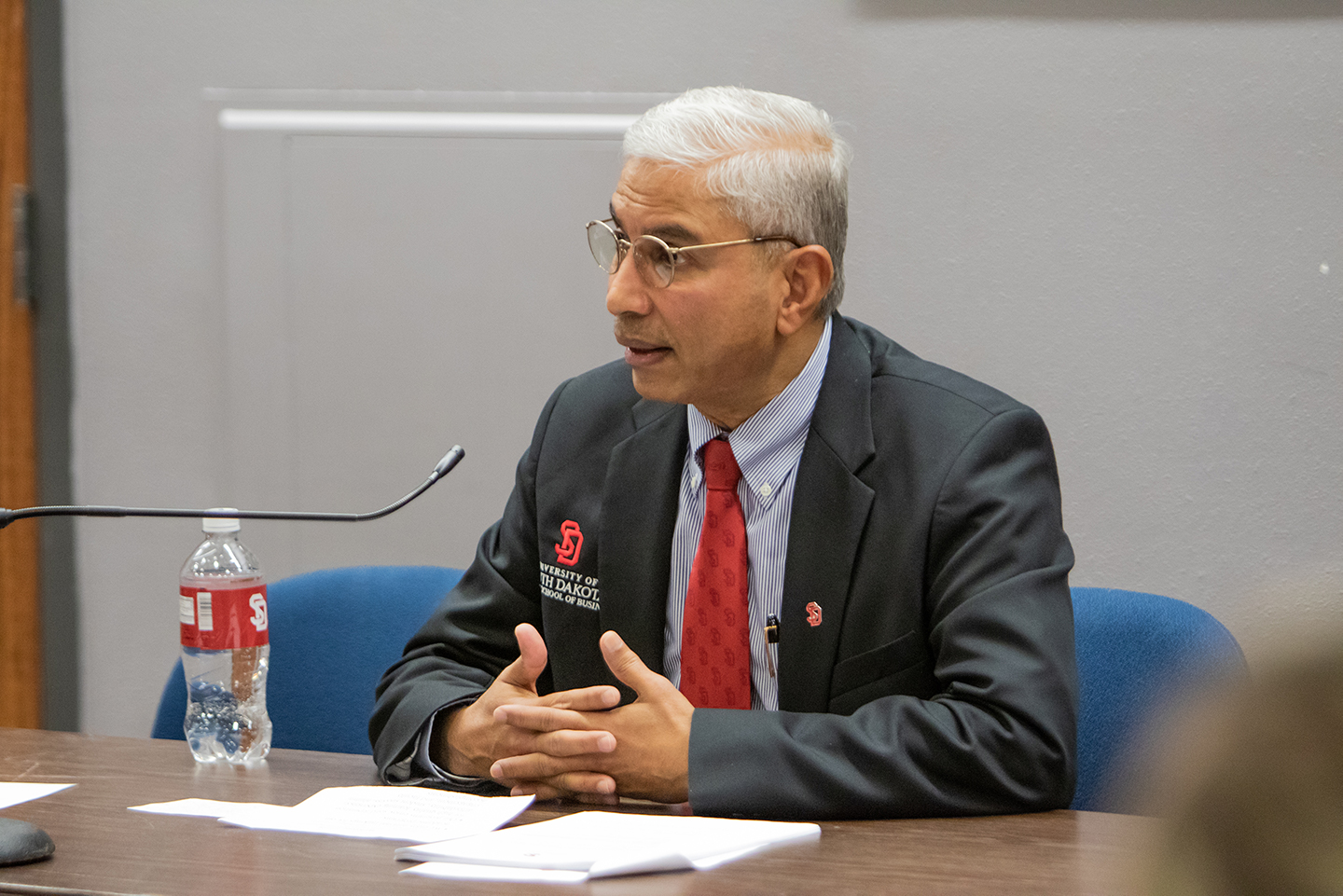
SGA discusses business school, funding guidelines
The Student Government Association continued its series of academic deans forums on Tuesday with Venky Venkatachalam, the dean of the Beacom School of Business. He told SGA of the positive feedback he received from three deans of other business schools during their USD visit last February.
“They made a visit to the campus for three days. They spent a lot of time meeting the dean’s advisory board, meeting in Sioux Falls,” Venkatachalam said. “They met with all the faculty. They met with students.”
After the three days, Venkatachalam said that the deans were “full of praise.”
But approval from other deans is not as important to Venkatachalam as the achievements of students.
“As the Dean of the Business School, every day I tell my faculty and staff that we are here for one specific purpose, and that is a laser-sharp focus on that specific purpose every day,” Venkatachalam said. “That is student success.”
Venkatachalam pointed to the presence of business leaders on-campus as an achievement for the school, saying that representatives from LinkedIn, TD Ameritrade and Sanford Health have all visited the school.
Carson Zubke, SGA President, is a health service administration and accounting major at the business school. While the school may be gaining more national recognition, he says that the school maintains a balance between faculty and students.
“You have those student-to-faculty ratios that allows you to have really close relationships with the people who are helping you learn and guiding you through that university experience,” Zubke said.
SGA also discussed its policy regarding funding for political groups at Tuesday’s meeting. Student For Reproductive Rights (SFRR) was denied funding for a trip to Pierre because the trip included a lobbying aspect. This sparked a conversation among SGA members about their policies for political groups.
“It’s moved more towards a line item funding model,” Zubke said. “If something crosses that gray line of what’s religious and what’s political, we’re not able to fund it. But if they have other activities that don’t cross that line, of course we’re going to support those as long as they’re adding value to the college experience.”

